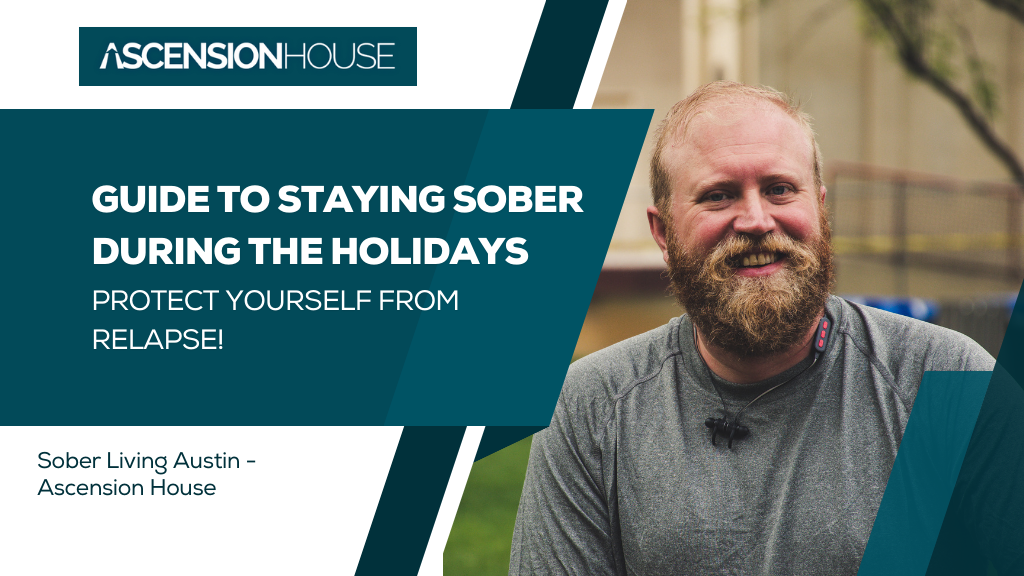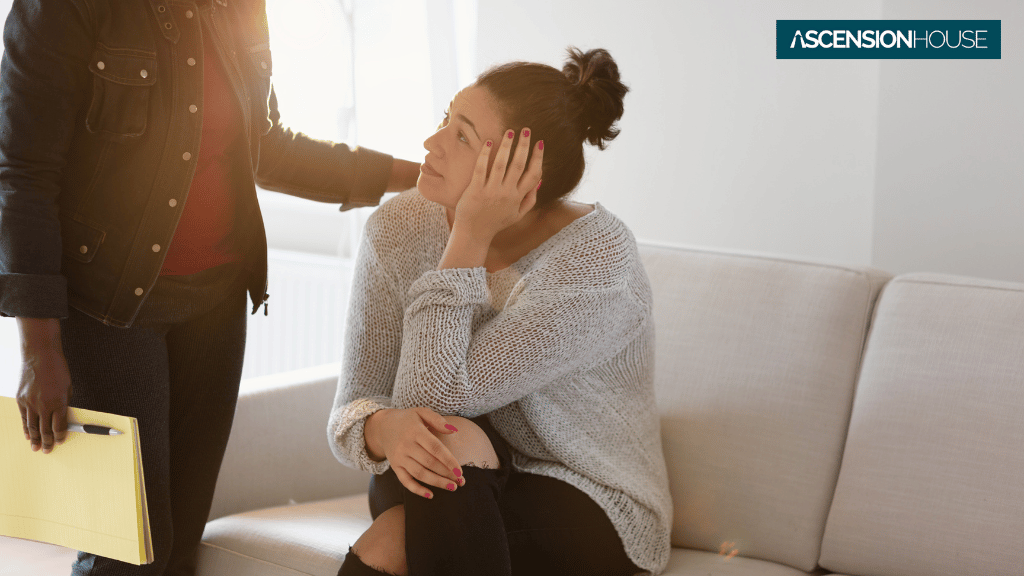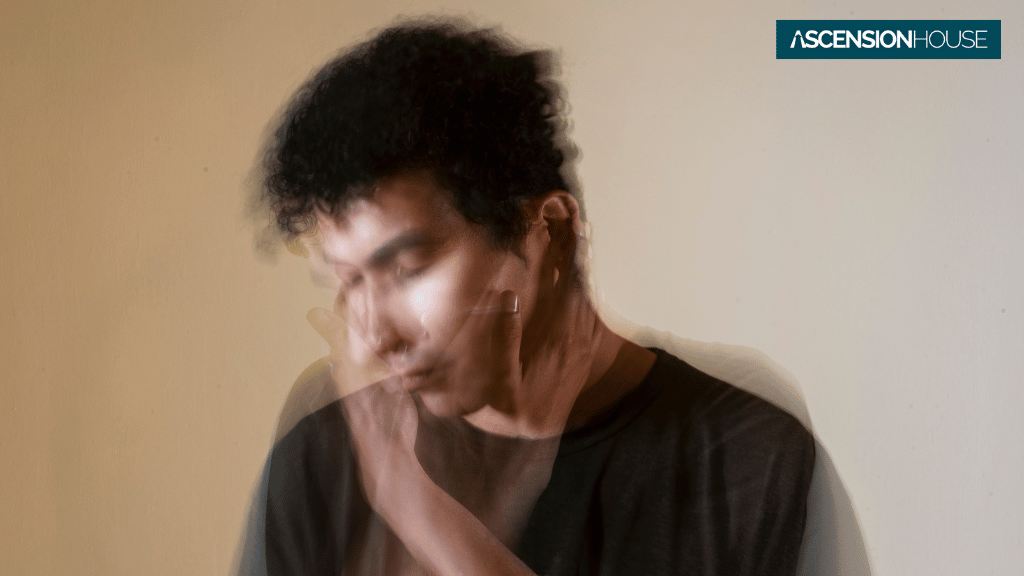
Most people know that the holiday season focuses on gift-giving. However, the most precious one you can give to yourself is a sober lifestyle. There could be times when it’s harder to sustain your recovery from alcohol addiction. You’ll have to practice vigilance if you wish to stay sober, whether in a homeless shelter or have a home.
The holidays are one of the worst times for substance abuse patients. However, there are steps you could take to feel supported and strong during this time. Be mindful of your goals, think up a strategy, and understand your triggers. Then, go a step further and take proactive steps to counteract those.
Overall, the holiday season should be a time of celebration for you. You’ve worked hard to reach sobriety, and you don’t want the holidays and all those social events to undo what you’ve already done.
Ascension House supports its clients with appropriate addiction treatments in Austin, Texas. Here are a few suggestions to stay sober while you experience the peace and joy that the Christmas season can provide.
Your ultimate guide to a sober holiday seasonhttps://t.co/Y36mFVfDe8 pic.twitter.com/kzhHj331f0
— Ascension House – Sober Living Austin (@AscensionSober) October 24, 2023
Why Is Staying Sober During the Holidays so Difficult?
You should know you’re not alone when worrying about staying sober during the holidays. It’s a time of revelry and merriment, but you may associate it with more drug or alcohol use because of your past.
Overall, the holidays pose various obstacles to sobriety and recovery. Identifying the pitfalls helps you plan ahead to avoid them and the risk of relapse. Here are a few reasons you might find it difficult to stay sober during the holidays:
Stress
People’s busy lives often go into overdrive when the year begins to end. The calendar will fill up quickly with activities, parties, trips, deadlines, gift shopping, family gatherings, and more. Such a hectic pace doesn’t leave much breathing room for you, which can lead to stress.
Likewise, you might have more anxiety and feel overwhelmed by everything. Therefore, you may want an outlet to escape, and drugs/alcohol can be the only thing you can think of.
Mental Health Problems
Typically, it’s easier to stay sober when you feel physically and mentally stable. However, the season presents unique challenges. Roughly 64 percent of all people get the holiday blues. The symptoms can include loneliness, sadness, irritability, and fatigue.
Others are afflicted with SAD (seasonal affective disorder). This is triggered by less sunlight in the winter months.
These afflictions are temporary and often go away when the holidays are over. However, if you’re recovering from substance abuse and co-occurring mental health problems, you might find it difficult.
Often, the holidays exacerbate (make worse) your pre-existing conditions. Those suffering from substance use disorders might require more mental health support to navigate the season effectively without alcohol or drug use.
Too Much Pressure
Christmas joy is everywhere. You’ll see store windows with garland, holiday light displays in the neighborhood, and Christmas movies full of romance and fun. That environment will leave you with an expectation of happiness, so you might feel uncomfortable if everything isn’t perfect.
Higher Emotions During the Holiday Season
The holidays could bring unhappy memories or negative thoughts to your mind. For example, you might be expected to attend a family dinner with people you dislike or who enabled the addiction.
Those who have lost loved ones might face the first holiday season without them. This will intensify your grief and make it much harder.
Some people might not be able to travel home for the holidays. They don’t know where they’ll be or who to spend the time with. This can lead to your emotions being stronger during the season, and that’s not always a good thing.
More Temptation
Most people are more riotous during the last few weeks of the year. They indulge in candies and cookies, stay out late at holiday parties, and drink a few extra cocktails than normal. All that extravagance on your face leads to a risk of relapse, so it’s hard to feel that you’re at your best.



Seven Tips for Staying Sober for the Holidays
Here are a few tips for staying sober. They consider the stress you’ll likely face during the season and offer ideas to create a plan for the weeks ahead.
Use the 12-Step Program
Look into therapy groups that utilize the 12-step program. It offers accountability, robust support, and a better sense of community. Make time to attend meetings whenever possible, especially when you might face a trigger event.
If you’re traveling, you can locate meetings online or in the area where you’ll be staying. Make sure you follow the program steps, especially the one about forgiveness. This might be the best time to let go of the past and move forward!
Surround Yourself with Encouragement and Love of Family Members
You require a support team. Create a list of people you could call when times are tough. This could be sober friends, family members, and more. Likewise, you can visit your support group more often during this time.
Balance Your Schedule
You don’t have to accept all the invitations you get, but you also don’t want days when you have nothing to do. That could make you feel sad or isolated, leading to a relapse.
Skip the events you don’t care about, balance the parties with quiet nights alone, and plan your gift list to avoid financial stress later.
Focus on the Reason for This Season
Spend time on your spiritual soul by meditating, saying morning prayers, and keeping a journal about the blessings you feel because of your sobriety. Overall, connect with your higher power.
Take Care of Yourself
Make sure you get the proper nutrition during the day, work out regularly, and focus on sleep during the holidays. Only eat when you are hungry, rest when necessary, and think about extra self-care, such as a manicure or massage.

Make It a Special Time
You’ll want to create new holiday traditions. Think about the ways you’ll celebrate while staying sober. It’s possible to personalize the holiday rituals to incorporate your new lifestyle.
Give and Receive
Helping others can benefit you! Volunteering will provide many health benefits, such as less anxiety and depression. Plus, you’ll meet new people!
How to Handle Relapse Triggers
If you’re dealing with a substance use disorder, get help to stay sober. Here are a few tips:
Change Your Circumstances
All those alcohol-infused parties can be troublesome. Make sure you have your own transportation to leave when you feel tempted.
Talk to Others
Speak to a sober friend or anyone in your support network. Share your feelings and get help!
Get Professional Help
Participate in the continuing care programs available in your area when you need support. Having a sober life takes work, but you can do it.

Everyday Tips for Staying Sober
Learning to stay sober during the holidays will help you through the year. Make sure you:
- Practice self-care
- Get support
- Find joy
- Create a healthy environment
- Be honest and seek help when necessary
Contact Ascension House for Assistance
While most people enjoy major holidays, it can be problematic for those who suffer from substance abuse. Ascension House is a recovery home that offers more structure to help you cope while starting on the road to recovery. Call 512-598-5030 for availability and questions.
FAQs
Here are a few tips to help you avoid relapse during the holidays:
– Work the 12-step program.
– Make sure your schedule is balanced.
– Surround yourself with like-minded people and seek encouragement.
– Take care of yourself.
– Give gifts, receive them, and relax!
Getting through the holidays without drinking is tough. Here are a few tips to help:
– Plan for events ahead of time and ask if alcohol will be served.
– Make sure you’ve got a non-alcoholic drink in your hand while at parties.
– Know when you’re leaving and stick to the schedule.
– Have your support system in place. Know how to get extra support if necessary.
After being sober for 30 days, your brain fog will start clearing, and you’ll likely feel more like yourself. This might mean sleeping better, being more energetic, and not dealing with hangovers. Your body might experience weight loss, less stomach fat, and healthier numbers (blood pressure, cholesterol, etc.)
Book a Free Assessment
Contact us to schedule a free addiction or mental health assessment as part of our admissions process.
 11700 Bittern Hollow Dr., Austin TX 78758
11700 Bittern Hollow Dr., Austin TX 78758 (512) 598-5030
(512) 598-5030






